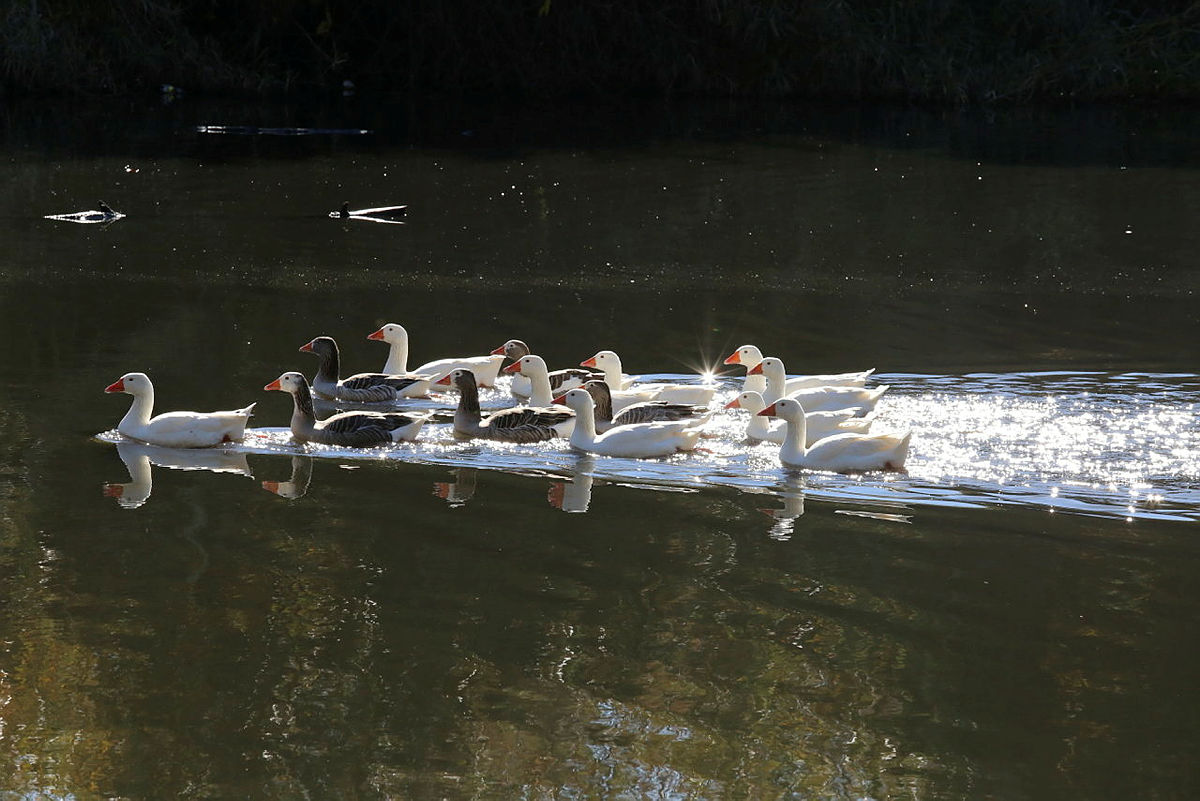Wagga Wagga has a gander of geese and ducks that live around the shores of the Wollundry Lagoon. These waterbirds roam as they please, with Council rangers and members of the community keeping an eye on their welfare.
Can I feed geese and ducks?
Heading down to the park or lagoon to feed the ducks and geese with the kids is anyone’s idea of a fun outing and activity. It’s enjoyable and one way to interact with the wildlife.
However, some foods can be harmful to birds and can lead them to suffering serious illness. Food meant for human consumption – such as slices of bread and rolls, chips, crackers and meats - can lead to nutritional imbalances. This increases the risk of disease and leads to altered animal behaviour. This behaviour is often aggressive and can result in humans being attacked or pecked.
People will notice signage at the Wollundry Lagoon. This is designed to help the community understand the need to keep our ducks and geese safe and healthy by resisting the urge to feed them 'junk food'.
While it may seem harmless enough to us humans to feed the ducks and geese, it can do a lot of damage, therefore we urge visitors and residents to follow these guidelines.

So what foods CAN I feed the ducks and geese?
Here are some suggestions of what to feed the ducks and geese that are safe for their health:
- Chop up some leafy greens such as kale and lettuce.
- Ducks and geese also eat a lot of insects, so feeding them mealworms or freeze-dried crickets mimics their natural food choices
Offer very small portions of food. And stop feeding the birds if they are no longer eating.
More information about feeding birds can be found at www.wires.org.au
The following information outlines some of the reasons why feeding geese and ducks food is not recommended:
A leftover packet of stale bread is often a favourite choice for feeding geese and ducks. However, Bread is like fast food for geese and ducks. It contains lots of carbohydrates and has little nutritional value, and can make them very sick.
These birds are small compared to humans, so even the smallest amount of bread can be unhealthy for them.
Please think twice before tearing up that half-loaf of stale bread and tossing it to the birds.
Bread that is leisurely tossed to the birds but remains uneaten will then sink in the water. While it may have disappeared from sight, the bread is doing its own damage to the ecosystem below.
The soggy bread beneath the water’s surface is now causing nutrient pollution, which in turn leads to an increase in the soil bacteria that causes avian botulism.
When water levels are low, the bacteria is concentrated, which causes infection in the geese and ducks as they forage for food. Waterfowl with botulism are unable to eat, become distressed and paralysed and will drown in the water or die on the bank.
Please help us stop the spread of disease in our local waterways where ducks and geese live.
There is evidence to support hand-feeding of waterfowl causes the geese and ducks to become dependent on humans for food or abnormally increase the local population density.
There have been reports of aggressive behaviour by the birds demanding food, and also putting young children feeders at risk.
The birds also venture beyond their natural habitat in search of food, and this has caused traffic incidents which has resulted in injuries to the geese.
What do I do if I find a sick or injured bird?
If you notice a waterbird that appears to be sick or injured please reach out to let us know.
Contact Wagga Wagga City Council
Phone: (02) 6926 9100 (between 8.30am - 5pm Monday - Friday)
24-hour call centre: 1300 292 442
Email: council@wagga.nsw.gov.au
Visit us: 243 Baylis Street, Wagga Wagga NSW 2650, Australia (between 8.30am - 5pm Monday - Friday)
Or contact WIRES: www.wires.org.au/report-a-rescue
